The conference fosters in-depth technical-scientific presentations as well as inspiring talks by experts from industry and academia. The following speakers have confirmed their participation in the conference to deliver keynotes and invited talks on utility and cloud computing topics:
Felipe Huici (NEC), Chris Woods (Siemens), Ihor Dvoretskyi (CNCF), Antonio Martini (CA Technologies), Monika Nawrot and Marek Biskup (Google), Francisco Gortázar (URJC), Diego Perez-Palacin (Linnaeus University), Massimo Villari (FCRLab) and Christian Geiger (Smart City Hub Switzerland).
You may also be interested in speakers on big data computing.
| Speaker and Bio | Topic and Abstract | |
|---|---|---|
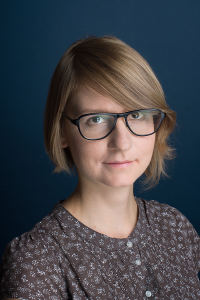 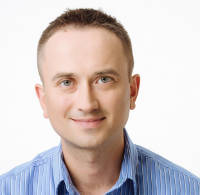
|
WoSC Workshop Invited Speakers/UCC Keynote: Monika Nawrot and Marek Biskup, Google. Monika Nawrot is a senior software engineer in Cloud Functions, at Google in Warsaw. She manages a team that works on reliability. With her experience in both software development and site reliability engineering, she leads multiple efforts to keep the whole system up and running. Previous to Google she worked at IBM and AOL and has experience in developing distributed backend systems and large scale data processing. Marek Biskup is a senior software engineer in Cloud Functions, at Google in Warsaw. Before Google, Marek worked on the backend of the enterprise dedupe storage appliance NEC HYDRAstor, and on data analysis tools for LHC at CERN. He holds master degrees in Computer Science and Physics (Vrije Universiteit Amsterdam and University of Warsaw) and a PhD in Computer Science (UW) for research on lossless data compression. | Challenges for Serverless Platform Providers. Serverless platforms save customers from managing and maintaining servers, however architecting and running such services is a real challenge for Cloud providers. They need to ensure that their platform is reliable, scalable, secure, so customers are isolated from one another, and that resources are automatically provisioned on demand. In addition, the platform needs to provide excellent developer experience to enable easy and smooth software development for customers. Finally, everything must be cost-efficient so that customers save money by not paying for idle cycles, and Cloud providers generate revenue required for their business to exist. In this talk we will discuss challenges that Cloud providers face when building Serverless platforms, and research areas for future development. |
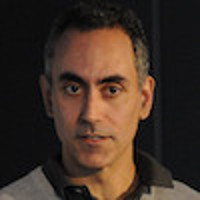
|
UCC Keynote: Felipe Huici, NEC. Felipe Huici is a chief researcher in the Systems and Machine Learning Group at NEC Laboratories Europe in Heidelberg, Germany. His main research and work interests lie in the areas of high-performance software systems, and in particular specialization, virtualization, and the application of machine learning techniques to tackle open problems in the systems area. | Unikraft: Unikernels for Dummies. In past years we have seen an ongoing fight between virtualization technologies for dominance of the cloud market, with two main proponents: virtual machines, which offer strong isolation, and containers, which are lighter weight but provide weaker security guarantees. Recently, unikernels have shown that it is entirely possible to have both lightweight virtualization (e.g., boot times of a few milliseconds, memory images of hundreds of KBs or a few MBs, etc.) all the while retaining the strong security provided by VMs. However, despite their advantages, unikernels have seen only relatively small amounts of deployment, mostly due to the expert work needed to create them and debug them. In this talk I will introduce Unikraft, an open source project under the auspices of the Linux Foundation and the Xen Project providing an automated build system for unikernels. Unikraft decomposes the OS into elementary pieces (e.g., schedulers, memory allocators, drivers, etc.) that users can pick and choose from, and supports multiple target platforms (e.g., KVM, Xen, containers and bare-metal) and architectures (e.g., ARM or x86). Thanks to Unikraft, it is now possible to create unikernels targeted at specific applications in a matter of minutes instead of months, allowing non-experts to leverage the advantages that unikernels provide. |
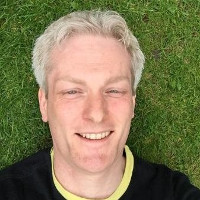
|
UCC Keynote: Chris Woods, Siemens. Chris Woods, a Senior Research Scientist with Siemens’ Corporate Technology team presents some of the issues facing Siemens today, how Siemens’ distributed compute and IoT team are tackling these issues, and what core technology and approaches the team believes will drive the future technology in this area. | I can see clearly now the fog as gone: Demystifying the impact of digitalization beyond the edge of production. Today’s industrial devices are increasingly connected, with automated systems, data collection and machine learning all playing a huge role in optimizing today’s industrial systems. All of this is underpinned by an expanding cloud pushing from the data center out to the industrial edge. Chris Woods, a Senior Research Scientist with Siemens’ Corporate Technology team presents some of the issues facing Siemens today, how Siemens’ distributed compute and IoT team are tackling these issues, and what core technology and approaches the team believes will drive the future technology in this area. The Siemens’ Corporate Technology team is the heart of research for the company, the Distributed Compute and IoT team focuses on how cloud technology can be integrated into products and services. This includes exploring how technologies which originated in the cloud can be used industrial applications. This work involves hybrid cloud and edge deployments for a range of scenarios including machine learning and data processing. An example of this is the industrial IoT deployment at CERN where 5 Petabytes of data is generated every day. The factory floor is evolving and today contains communication networks supporting multiple IoT protocols transmitting and receiving data with multiple different types of service levels, heterogeneous compute solutions and software running in containers and virtual machines, with some software co-located for performance and others distributed for resiliency. This is increasingly being combined with edge computing and hybrid cloud solutions with data and instructions flowing from small low end devices controlling factory equipment to large cloud servers. This is leading to new solutions which can self-manage and distribute themselves across this entire spectrum, where software placement and distributed orchestration is key to the success of a production line. This environment becomes a melting pot of industrial control and best practice with IT systems and cloud technology. It is in the mist of this that Siemens research is finding new ways to manage the software which manages the machines. |
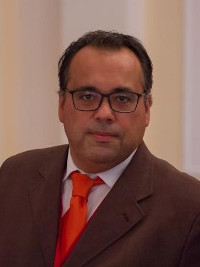
|
UCC Keynote: Massimo Villari, FCRLab. Massimo Villari is Associate Professor in Computer Science at University of Messina (Italy). In May 2018 he won the position of Full Professor in Computer Science at the same University, and he is in the way for formalizing it. He is actively working as IT Security and Distributed Systems Analyst in Cloud Computing, virtualization and Storage and one of the creator of Osmotic Computing Paradigm. For the EU Projects “RESERVOIR” he leaded the IT security activities of the whole project. For the EU Project “VISION-CLOUD”and H2020-BEACON, he covered the role of architectural designer for UniME. He was Scientific ICT Responsible in the EU Project frontierCities, the Accelerator of FIWARE on Smart Cities – Smart Mobility. He is strongly involved in EU Future Internet initiatives, specifically Cloud Computing and Security in Distributed Systems. He is co-author of more of 170 scientific publications and patents in Cloud Computing (Cloud Federation), Distributed Systems, Wireless Network, Network Security, Cloud Security and Cloud and IoTs, and recently in Osmotic Computing. He was General Chair of ESOCC 2015 and IEEE-ISCC 2016. Since 2011 he is a Fellow of IARIA, recognized as a Cloud Computing Expert, and since 2011 he is also involved in the activities of the FIArch, the EU Working Group on Future Internet Architecture. In 2014 was recognized by an independent assessment (IEEE Cloud Computing Transaction, Issue April 2014) as one of World-Wide active scientific researchers, top 27 classification, in Cloud Computing Area. He is General Chair of IEEE-ICFEC 2019 and Workshop Co-Chair in IEEE-CIC 2018. Currently he is Scientific Responsible for UniME-IRCCSME Cloud initiative in eHealth. | OC: Are we are Ready for a New Computing Paradigm disrupting today Silos?. With the promise of potentially unlimited power and scalability, cloud computing (especially infrastructure as a service [IaaS]) supports the deployment of reliable services across several application domains. In the Internet of Things (IoT), cloud solutions can improve the quality of service (QoS), fostering new business opportunities in multiple domains, such as healthcare, finance, traffic management, and disaster management. Available mature solutions, such as Amazon IoT and Google Cloud Dataflow, demonstrate the success of cloud-centric IoT programming models and resource orchestration techniques. However, recent technological advances have disrupted the current centralized cloud computing model, moving cloud resources close to users. Osmotic computing is a new paradigm that’s driven by the significant increase in resource capacity/capability at the network edge, along with support for data transfer protocols that enable such resources to interact more seamlessly with datacenter-based services. It aims at highly distributed and federated environments, and enables the automatic deployment of Microservices that are composed and interconnected over both edge and cloud infrastructures. Osmotic computing inherits challenges and issues related to elasticity in cloud Osmotic datacenters, but adds several features due to the heterogeneous nature of edge datacenters and cloud datacenters. Various stakeholders (cloud providers, edge providers, application providers, IoT DevOPs, and so on) can contribute to the provisioning of IoT service and applications in a federated environment. An interesting is becoming the new aspect that allows to leverage a simplified bio-techniques and models for managing complex analogous systems. |
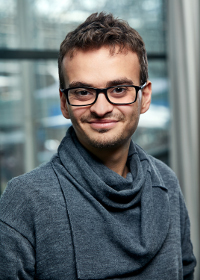
|
CNAX Workshop Invited Speaker and Panelist: Ihor Dvoretskyi, CNCF. Ihor Dvoretskyi is a Developer Advocate at Cloud Native Computing Foundation, focused on Kubernetes-related efforts in the open source community. Ihor is a co-founder and co-lead of the Kubernetes Product Management Special Interest Group (SIG-PM), focused on enhancing Kubernetes as an open source product; also he acts as a Kubernetes Community project manager. Besides that, he was actively involved in the release process as a features lead for multiple Kubernetes releases. At CNCF, Ihor acts as an advocate for the technology projects from the Cloud Native ecosystem. Besides that, he is driving multiple developer relations programs, including the CNCF Meetup and Ambassadors programs. With an engineering (DevOps) and PM background, Ihor has been responsible for the projects tightly bound to the cloud computing space, containerized workloads and Linux systems. His recent speaking appearances include talks at KubeCon/CloudNativeCon’s, Kubernetes Leadership and Contributors Summits, OpenStack Summits NA and APAC, OpenSource Leadership Summit, OpenSource Summits EU and NA, ContainerDays EU, Google DevFests and other industry-leading events worldwide. | The world of Kubernetes / The Cloud Native Ecosystem. In the CNAX talk, recent advances in cloud-native software and community will be presented. I'll highlight the most notable achievements of the Kubernetes project during the last year and earlier; the project's velocity and it's role in the Cloud Native ecosystem, together with the brief roadmap highlights. In the panel discussion, a wider ecosystem look will be provided, which will give us a wide field of topics to discuss (including software, community and related). |
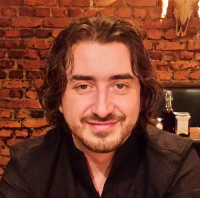
|
CNAX Workshop Invited Speaker: Antonio Martini, CA Technologies. Antonio Martini is Principal at CA Technologies, Strategic Research in Barcelona. Antonio is also Associate Professor at University of Oslo. Antonio has worked (and still collaborates) with several Nordic European companies such as Ericsson, Volvo, Siemens, etc. both conducting research and consultancy with them on Continuous Architecture and Technical Debt Management. | Managing architectural debt. The Microservice architecture is being adopted more and more in industry to support the agility of empowered development teams. However, developing or migrating to microservices is not an easy task. The risk of failure is to incur in a large Architectural Technical Debt and, consequently, in costly consequences for the organizations. Agile software development and, more specifically, Continuous Architecting, provide an opportunity to strategically manage and mitigate the negative impact of such Architectural Debt by monitoring its accumulation in a Microservice architecture. |
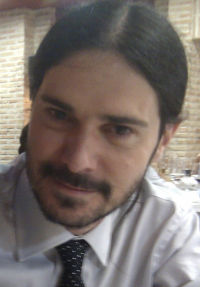
|
QA3C Workshop Invited Speaker: Francisco Gortázar, Universidad Rey Juan Carlos. Dr. Francisco Gortázar is a Tenure Professor at Universidad Rey Juan Carlos with more than 12 years of experience in teaching distributed systems and concurrent programming. He has a strong connection with the industry, specifically providing consultancy about cloud technologies and improving testing and Continuous Integration and Deployment activities. Currently he is coordinating the H2020 project ElasTest, where he is researching novel ways of testing cloud infrastructures and applications, including 5G, IoT and real-time communication systems. | Observability in testing. With the advent of cloud computing, cloud native applications and microservices, development teams are facing big challenges when testing their applications. The complexity of such applications has led to the concept of system observability: it’s not enough collecting logs and metrics, more powerful goal-driven visualizations are needed. Although many efforts have been put into observability of systems at runtime (in production), this is not the case for the rest of the lifecycle of the system. Specifically, in testing we are still using red/green quality gates, plain logs and stack traces. This way it is really difficult to assess these kind of systems, as it is to do a proper root-cause analysis. This root-cause analysis process requires the correct abstractions. In this talk I will introduce the observability concept, as it is used in production systems, and will present how that same concept can be leveraged at testing enabling novel ways of understanding the system behaviour, detecting misbehaviours and finding root-causes before they surface at production. |
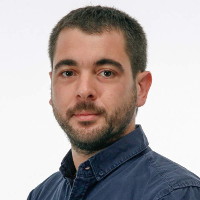
|
Doctoral Research Forum Invited Speaker: Diego Perez-Palacin, Linnaeus University, Sweden. Diego Perez-Palacin is Senior Lecturer in the Computer Science and Media Technology Department at Linnaeus University, Sweden. He received his PhD in computer science from the University of Zaragoza, Spain. He has been postdoctoral researcher at Politecnico di Milano (2013-2016), Italy, and Senior Researcher at University of Zaragoza (2017), where he has participated in publicly funded European (FP7 and H2020) and national research projects, as well as Teaching Innovation projects. His research interests are in the areas of quality properties of software with special interest in self-adaptive software, cloud computing, model-based analysis, self-adaptation under uncertainty, and Software Performance Engineering. | Quality of Service in Cloud Applications. Cloud Computing gave astonishing possibilities to handle the applications Quality of Service. Recent advances built upon cloud computing such as containerisation, microservices and self-adaptation have even increased the range of options to improve and guarantee the software Quality of Service. At the same time, these new possibilities make more complicated the evaluation and prediction of the software behavior and quality. This talk in the doctoral forum will cover recent experiences in cloud applications with respect to their Quality of Service evaluation, management, quality assessment for Big Data problems, self-adaptation, and their deployment using Infrastructure as Code in DevOps. |
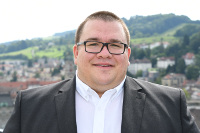
|
SCCTSA Workshop Invited Speaker: Christian Geiger, Smart City Hub Switzerland. Dr. Christian Geiger is working for the city of St.Gallen as Chief Digital Officer (CDO) since 2017. His main topics are digitization, open data, open government, e-government and smart city. Geiger studied Political and Administrative Sciences at the University of Constance (B.A.) from 2003-2006 and Public Management and Governance from 2006-2009 at the Zeppelin University in Friedrichshafen (M.A.). There he worked for five years at the Chair of Administrative and Business Informatics (Telecom Institute for Connected Cities / TICC). From 2013 to 2017, he was responsible for the area "key issues ulm 2.0" and the promotion of the "digital community" at the city of Ulm. | Activities of the Smart City Hub Switzerland. Christian Geiger presents the activities of the "Smart City Hub Switzerland". The association was founded in August 2018 and is pushing the Smart City activities in various cities within Switzerland. Geiger informs about goals, current projects and future ideas about Smart Cities. |